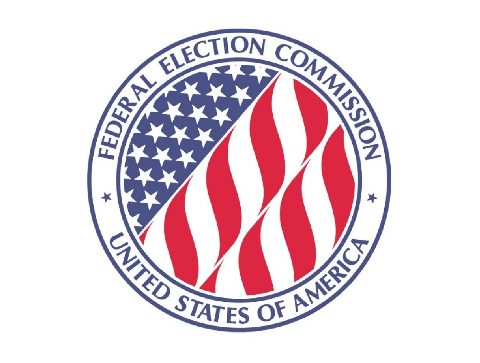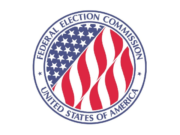PDF of comments available here
Submitted Electronically
Federal Election Commission
Attn: Mr. Robert M. Knop, Assistant General Counsel
Ms. Joanna S. Waldstreicher, Attorney
Office of General Counsel
1050 First Street, NE
Washington, DC 20463
Re: REG 2021-02 (Notice of Availability of Rulemaking Petition Regarding Subvendor Reporting; Notice 2021-11; 148 Fed. Reg. 42753)
Dear Mr. Knop and Ms. Waldstreicher:
On behalf of the Institute for Free Speech (“IFS”),[1] I submit these comments in response to the Commission’s Notification of Availability of a Petition for Rulemaking (“Petition”) filed by the Campaign Legal Center and the Center on Science & Technology Policy at Duke University. The Petition seeks to amend regulations at 11 CFR 104.3(b) (political committee reporting), 109.10(e) (independent expenditure reporting), and 104.20(c) (electioneering communication reporting) to require reporters under these provisions to itemize certain payments by vendors to subvendors. The Commission seeks comment “on the Petition” to help determine if “the Petition has merit.”
At the outset, we note that there is some question as to whether the statute permits the Commission to demand that committees report on subcontractors, at least where those subcontractors are retained by vendors without a committee’s prior knowledge. The statute provides that “[e]ach report under this section shall disclose. . . (5) the name and address of each – (A) person to whom an expenditure in an aggregate amount or value in excess of $200 within the calendar year is made by the reporting committee. . . .”[2] Payments by vendors, at least when not earmarked or without other prior, specific authorization by a committee, are not expenditures “by the reporting committee.” Furthermore, the reporting recommended by the Commission would require vendors to report to committees on their use of subvendors within specific (and often very short) time frames. This effectively creates a whole new category of reporting entities without statutory authorization of any kind. If a vendor fails to report the required information to a committee, would the Commission assess penalties against the vendor? On what authority? If not, would or could committees be held liable for the failure of the vendor? How is this expected to work?
Even if the Commission determines that it does have this authority, it should proceed cautiously. The burden of these requirements should not be underestimated, particularly in the context of 24- and 48-hour reports and smaller committees or organizations that make only occasional independent expenditures or electioneering communications. And the reach of Petitioners’ proposal is extreme – it would seem to require, for example, reporting of salaries paid by vendors and subvendors[3] or even amounts for rent, utilities, and the like.
The Petition downplays these issues by arguing that “California … has already adopted and implemented similar disclosure regulations.”[4] The word “similar” does a good deal of work in that sentence. The California regulations[5] provide a defined universe of subcontractor payments that must be disclosed, unlike the open-ended, undefined requirement recommended in the Petition. Imposing subvendor reporting requirements on 24-hour reports is indeed burdensome. In California, spenders frequently lack information on subvendors within the timeframe necessary to file 24-hour reports and are forced to file supplemental or amended reports to account for subvendors as the information becomes available, creating confusion and a plethora of amended filings. The California scheme is neither identical to what the Petition proposes, nor something that has been particularly “workable,” if by “workable” we mean providing the public with the information it purports to provide within the timeframes it purports to provide it.
Given these burdens, the Petition fails to demonstrate that this is a game worth the candle. The Petition identifies four alleged problems caused by the failure to require reporting of subvendors and subcontractors. One that may be dispensed with quickly is that, without such reporting, “it becomes nearly impossible for researchers and academics to monitor digital political ad practices.”[6] This is hardly a compelling government interest, and there is no evidence that a purpose of reporting under FECA was to assist researchers who want to “monitor” digital ad practices – practices which often reveal proprietary campaign strategies.
The other alleged interests are in providing voters with information to “assess candidates and cast informed votes,” to prevent committees from “disguis[ing] FECA violations, such as violations of the personal use ban” and “common vendor coordination,” and to uncover “scam PACs.”[7] However, missing from the Petition is any evidence that any of these are real problems or that forced disclosure of subvendors would solve the alleged problem.
For example, the Petition raises the concern that the subvendor “loophole” would allow a campaign to hire an “extremist militia group” without voters’ knowledge.[8] (“If a candidate is going to use campaign funds to hire militia members, voters have a right to know about it.”[9]). This is simply an imaginary problem, and if this is the best one can come up with to justify a new regulation, it suggests the alleged problem is being overblown. Simply put, is there any example of this ever happening? Is there any reason to believe that a candidate not already well-known for ties to extremist groups would, in fact, hire an “extremist militia group” to do … well, to do what? Develop an ad campaign? Write position papers? And is there reason to believe that a contractor who subcontracts with an “extremist militia group” would not, itself, have a reputation and track record? Is there any reason to believe that if – as in the fevered imagination of a Business Insider reporter,[10] but apparently not in the 50-year history of FECA – a candidate hired an “extremist militia group” to provide security, it wouldn’t soon be noted and reported at the event where security was provided? And do laws prohibiting intimidation, assault, battery, and public disturbance suddenly not apply if the “extremist militia group” is not specifically named in FEC reports? We humbly suggest that this sounds very much like a solution desperately searching for a problem, with the Petitioners’ demand for this type of scandal exceeding the supply.
The remaining parade of horribles are similarly undocumented as actual problems. For example, was it really a problem, to be addressed by FECA, that voters didn’t know that a man named Bill Stepien was the Campaign Manager of Trump for President in 2020?[11] Would any significant number of voters have known or cared if added reporting had required this? If voters didn’t learn this from news reporting – this was hardly a secret to reporters covering the campaign – would they really learn it from FEC reports? And would reporting of all salaries paid by a campaign actually inform voters or simply overwhelm them in a morass of largely irrelevant information? Is there any reason to believe that voters, as opposed to Washington, D.C.-based campaign finance activists, give a damn?
Similarly, so-called “scam PACs” are readily identified simply by their ratio of expenses to candidate contributions or independent expenditures, the names of primary vendors, and the identities of treasurers. The Petition discusses and cites to cases of “scam PACs” but cites to no instance where its proposed regulations would solve the alleged problem.
And if additional reporting is needed to identify payments to a candidate’s family or candidate-owned or controlled enterprises, with the idea of ferreting out personal use, a simple rule could be adopted requiring reporting of expenditures by vendors to any member of a candidate’s family or a candidate-owned or controlled enterprise.
To the extent there is a reporting problem, IFS believes it has less to do with the identity of subvendors than with reporting of the actual purpose of campaign expenditures. For example, opposition research, such as, to give one hypothetical, hiring a retired British spy to gather dirt and compile a “dossier” on an opposing candidate, should not be identified as “legal services,” “legal research,” or some other such term on a FEC report, but instead as “opposition research.”[12]
In a 2007 Policy Statement, the Commission noted that “[t]he ‘purpose of disbursement’ entry, when considered along with the identity of the disbursement recipient, must be sufficiently specific to make the purpose of the disbursement clear.”[13] Further, “filers should consider the following question: ‘Could a person not associated with the committee easily discern why the disbursement was made when reading the name of the recipient and the purpose?’”[14] This general guidance is correct but has proven inadequate. If the Commission really believes that voters are desperate for more info in reports filed with the Commission, rather than add new reporting burdens, the Commission might be better served to expand on this guidance with more specific examples, if necessary, or by modifying its forms and software to provide various check list options for categorizing expenditures.
The Commission has yet to address a number of its regulations that are now in contravention of controlling federal court decisions, including the elementary task of creating forms for independent expenditure committees. In at least one case, the Commission has yet to comply with a court order to strike a regulation from the Code of Federal Regulations,[15] though it did find the time to urge Congress to amend the statute so it could keep the stricken regulation on the books.
Before embarking on a rulemaking placing new, burdensome regulations on businesses (and that is really what would occur in practice, since subvendors and subcontractors would incur new reporting obligations) political committees, and entities making independent expenditures and electioneering communications, the Commission must seriously evaluate the problem. There is a cost to regulation, and the Commission should be sure that it is dealing with real problems, and if so, that the solution actually addresses the alleged problem in an efficient and practical matter. The Institute for Free Speech is skeptical that the Petition meets either criterion. Fanciful hypotheticals about militia groups and the desires of “academic researchers” aren’t really a good basis for throwing more regulations on political speech.
Should the Commission proceed, however, we intend to offer specific comments on any proposed rule.
Respectfully submitted,
Bradley A. Smith
Chairman
[1] The Institute for Free Speech is a nonpartisan, nonprofit § 501(c)(3) organization that promotes and protects the First Amendment political rights of speech, press, assembly, and petition. In addition to scholarly and educational work, the Institute is actively involved in targeted litigation against unconstitutional laws at both the state and federal levels.
[2] 52 U.S.C. § 30104(b)(5)(A) (emphasis added).
[3] See Petition at 5, n.19.
[4] Id. at 2.
[5] See 2 Cal. Code Regs. § 18431.
[6] Petition at 4.
[7] Id. at 4-6.
[8] Id. at 5.
[9] Id. at n.17.
[10] See Petition at n.17.
[11] Id. at 5, n.19.
[12] See, e.g., Jonathan Turley, “Clinton lawyer’s indictment reveals ‘bag of tricks,’” The Hill. Available at: https://thehill.com/opinion/judiciary/572861-clinton-lawyers-indictment-reveals-bag-of-tricks (Sept. 18, 2021).
[13] Federal Election Commission, “Purpose of Disbursement” Entries for Filings With the Commission, 72 Fed. Reg. 887 (Jan. 9, 2007).
[14] Id. at 888.
[15] Federal Election Comm’n v. Swallow, 304 F.Supp.3d 1113 (D. Utah 2018).














